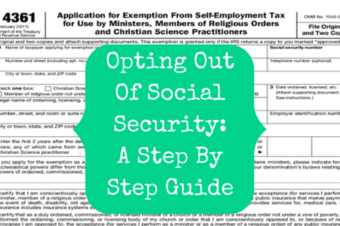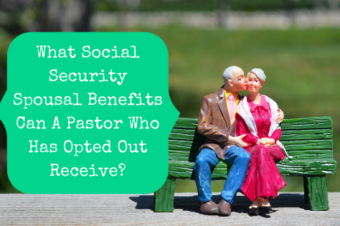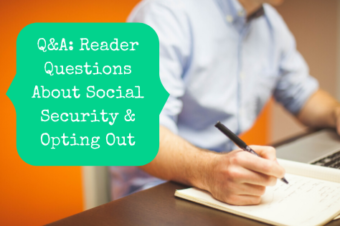
I have heard from countless pastors who opted out of Social Security in their youth only to regret it 30 years later. By that time, the idea of retirement has become more of a reality and they realize that they have done nothing to prepare. Apparently, California Congressman Kevin McCarthy has heard the same. In February, McCarthy introduced a bill that would allow pastors who had opted out to opt back in. The bill, H.R. 5904, is also called the Clergy Act of 2020.
What Does The Clergy Act Of 2020 Say?
The bill, which you can read here, is short and simple. It’s stated goal is, “To allow a period in which members of the clergy may revoke their exemption from Social Security coverage, and for other purposes.” It has been 20 years since the last time Congress allowed pastors to opt back into Social Security.
H.R. 5904 creates a 2-year window starting January 1, 2021, in which clergy can apply to revoke their Social Security exemption. The deadline would be the due date (including extensions) for the tax return of the second taxable year after December 31, 2020. In other words, the due date for your 2022 tax return, which is April 17, 2023, unless you file for a 6-month extension or use a non-calendar tax year.
How Can The Clergy Act Of 2020 Become Law?
Right now, the bill is in the first stage of the legislative process. It was introduced to the Committee on Ways and Means, who will determine if it should be sent on to the entire House of Representatives. If approved by the House, it would then be sent to the Senate. After passing votes in both the House and the Senate, it would go to the President to sign into law.
It’s not quite as simple as it sounds, though. Many bills don’t make it out of committee. Even if the House passes it, the Senate has to pass the exact same version of the bill. If they want to make changes, then it gets sent back to the House for approval. It can be a long and difficult process, especially considering how well our politicians are all getting along these days. On the government’s bill tracking website, Skopos Labs only gives the bill a 2% chance of being enacted. But there’s still a chance.
Should I Opt Back Into Social Security?
No matter the percentage chance assigned, it is a good idea to consider what you would do if the bill is signed into law. Would you take advantage of the opportunity to reenter the Social Security system?
I’ve been asked for recommendations on this. First of all, the decision to opt out is supposed to be made based on firmly held religious convictions and matters of conscience. I do not know what you think and believe and neither can I tell you what to believe. You’ll have to work that out with God himself.
I can only give you tips on how to view it from an economic perspective. Now, the IRS makes it abundantly clear that you are not allowed to opt out for economic reasons. Of course, the proposed bill says nothing about opting back in for economic reasons.
Whether or not it makes sense to opt back in from an economic perspective depends on your personal situation. If you are 50-years-old and have nothing saved for retirement, you would likely be better off opting back in. Without savings, even just a small Social Security retirement benefit can be a game-changer for you. Remember also, that the Social Security program provides more than just retirement benefits.
If you are young and saving responsibly, you may be better off from a numbers perspective to stay out of Social Security. Devin at socialsecurityintelligence.com ran the numbers and found that it is very possible to end up with more if you stay outside of the system, though you take on additional risk.
The key words there are “saving responsibly.” If you are young and think you’ll start saving later, then you are a good candidate for opting back in. Because later never comes. Yes, you may get a pay raise when you become senior pastor, but by that time you’ll also have 3 kids that want gymnastics and soccer lessons and 3 meals a day and you will feel like you have less margin then than you do now.
If you’re unsure how the numbers work out in your situation, I would encourage you to hire a financial advisor to do a complete analysis for you. There are a lot of good advisors out there, but if you need a recommendation, email me because I work with a great one.




1 Response